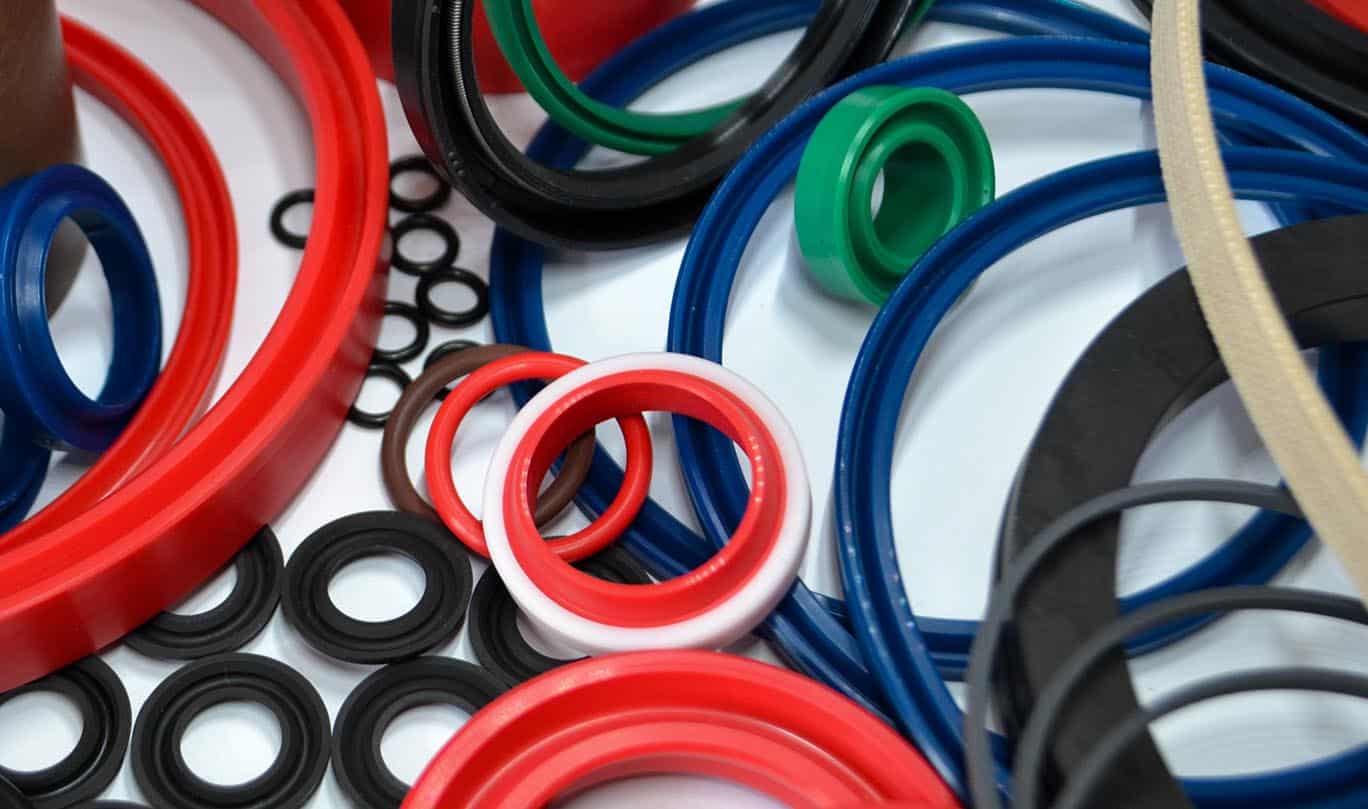Author:
Ing. Jan Ondra
Categories:
Seal production technology

SEAL PRODUCTION TECHNOLOGY
Comparison of seal technologies for hydraulics
The sealing elements used in hydraulic cylinders are manufactured using two basic technologies.
These are:
- Injection Molding Technology
- CNC Turning Technology
Each of these technologies has its advantages and disadvantages and is suitable in different situations.
Below is a comparison of the two technologies. More information about our production possibilities can be found here.
INJECTION MOULDING TECHNOLOGY
Advantages and disadvantages of injection moulding technology
Process:
- The injection of a plastic or elastomer into a mould under high pressure to harden the material.
- It is mainly used for thermoplastics and elastomers.
Benefits:
- High-volume production: the technology is suitable for the production of large batches with low unit cost.
- Repeatability: every piece produced by injection moulding has consistent dimensions and quality.
- Complex shapes are possible: the injection mould enables the production of seals with very complex geometries.
- Speed of production: once the mould is created, large quantities of pieces can be produced quickly.
Disadvantages:
- Initial cost: High cost of injection mould production, which can be uneconomical for small batches.
- Demands on mould accuracy: any change in design requires an adaptation or new mould, which can be time and cost consuming.
CNC MACHINING TECHNOLOGY
Advantages and disadvantages of CNC seal manufacturing technology
Process:
- The production of seals is carried out by removing material from a semi-finished product using a CNC lathe controlled by a computer.
Advantages:
- Flexibility: the CNC technology allows rapid adaptation to design changes without the need to produce new moulds.
- High precision: the CNC machines achieve very high precision and are ideal for manufacturing seals with tight tolerances.
- Suitable for small batches and prototypes: production costs are not quantity dependent, making this method suitable for small batches or one-off orders.
- Wide range of materials: cnc turning allows you to work with a variety of materials, including metals and special plastics.
Disadvantages:
- Slower production: the process is more time-consuming compared to injection moulding.
- Higher unit cost: for large batches, the price per unit can be higher than injection moulding.
- Less complex shapes: turning is more suitable for simpler geometries, while more complex shapes may be more difficult to achieve.
SEAL PRODUCTION TECHNOLOGY
Comparison of gasket manufacturing technologies
- Injection moulding is preferable for high-volume production of seals with complex shapes and low unit cost requirements.
It is suitable for long-term projects where the initial mould costs are justified. - CNC turning is ideal for small batches, prototypes, or applications requiring high precision and rapid design modification.
| Factor | Injection moulding | CNC turning |
|---|---|---|
| Suitability for mass production | High (for high volumes) | High (for small volumes) |
| Initial investment | High (tools, forms) | Low (machine setup) |
| Unit price | Low for large batches | Higher, especially for large batches |
| Adaptability of design | Low (need for new moulds) | High (software modification) |
| Accuracy | High, but dependent on mould quality | Very high, independent of geometry |
| Production time | Short (after mould production) | Longer (more time consuming) |
| Complexity of shapes | High | More limited (simpler geometry) |
CONTACT
Are you interested in our offer?
If you have any requirement for the production of seals, we will be happy to be contacted.
We will be happy to discuss everything with you and prepare a non-binding quotation based on the documents. If you are interested, please contact us at one of the contacts listed here or via the contact form.